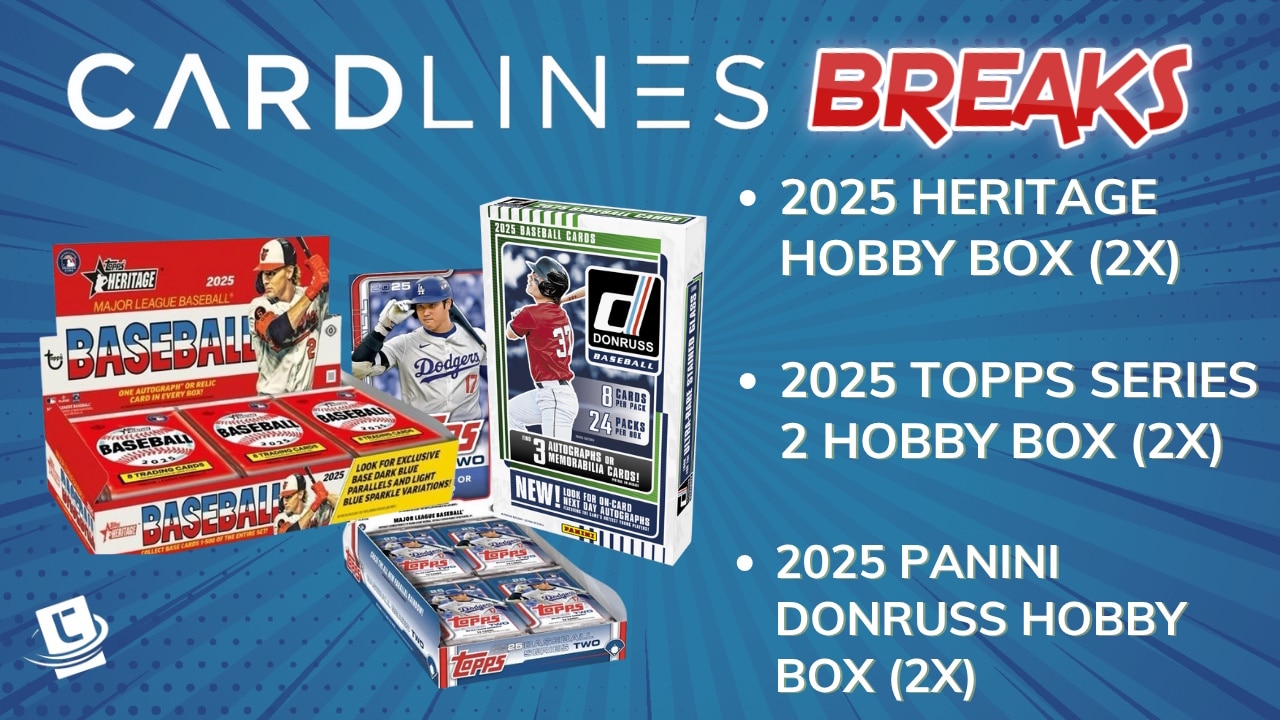

One of the biggest scams in hobby history, using one of its most iconic cards has come full circle this month.
A man pled guilty to having sold several counterfeit cards from 2015 to 2019. In most cases, the fraudsters in the hobby get away with murder. Well, with scamming card collectors, which is our version of murder.
But in this case, the perpetrator will pay a heavy price. What makes this one different and how was he caught? What can we learn about future scams and enforcement from this unique case?
Check prices on 1986-87 Michael Jordan Fleer rookie cards on eBay
We have the answers in our $800,000 Fleer Jordan Rookie scam overview.
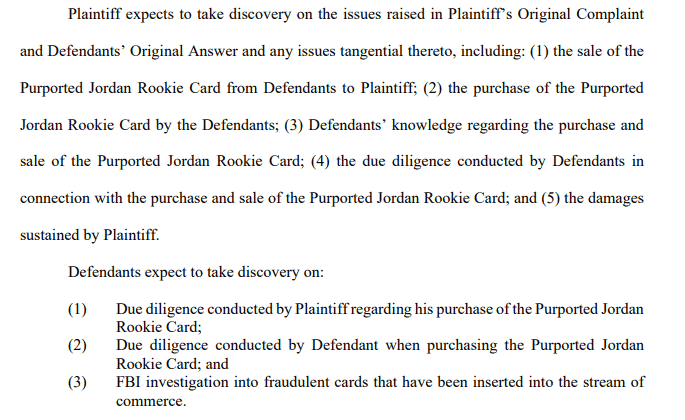
First, a few words are on the most important card that this individual forged. The card is more than just cardboard. The 1986 Fleer card is more than a mere collectible.
It is a cultural touchstone. Aside from the Mickey Mantle 1952 Topps, it is the most important card in hobby history. Collectors speak about this card with reverence beyond typical sports memorabilia. It symbolizes the moment a transcendent athlete was about to transform basketball from a game into a global entertainment spectacle.
As we wrote in our article about the card, “Few sports cards are more iconic,” we wrote in Cardlines, noting the card’s “unmistakable border colors” and historical significance. But with greatness comes a darker side: this card has become the ultimate target for forgers looking to cash in on collectors’ dreams.
Today, the card’s value is astronomical. The most expensive sale of one of these cards was for a bit over 1 million dollars at Christie’s. That card was a rare signed version at a Beckett 8.5 grading level.
Check prices on 1986-87 Michael Jordan Fleer rookie cards on eBay
The card’s tremendous value is already a reason to create counterfeit copies. But its vulnerabilities make it a particularly tempting target.
The 1986 Fleer Michael Jordan rookie card represents a perfect storm of counterfeiting potential. Cardlines explains that the card is “probably the most faked card in the industry” due to its unique vulnerabilities.
The original printing process created specific weaknesses that modern forgers have learned to exploit with remarkable precision.
The card’s simple design — a red, white, and blue border with Jordan mid-flight — might look straightforward, but it contains subtle details that separate authentic cards from sophisticated counterfeits.
The most critical vulnerabilities lie in the card’s minute details. DJ Authentication notes that “genuine cards exhibit a distinct color variation between the arrow and the ‘Premier’ background” — a nuance that counterfeiters struggle to replicate perfectly.
The Fleer logo alone contains multiple potential points of forgery: the yellow arrow’s precise shade, its exact positioning, and the print’s inherent fuzziness.
Collectors must scrutinize elements most would overlook — the white space around the Bulls logo’s pupil, the specific texture of the card’s glossy finish, and the precise decimal point clarity in Jordan’s statistical information.
These aren’t just details; they’re the forensic fingerprints that separate a $300 fake from a $300,000 genuine piece of sports history.
Mayo Gilbert McNeil, an 84-year-old from Denver, has pleaded guilty to a sophisticated sports card fraud scheme that federal prosecutors have meticulously documented.
On February 18, McNeil was charged with two federal felony counts: conspiracy to commit mail and wire fraud, and wire fraud.
According to court records filed in the U.S. District Court for the Eastern District of New York, McNeil’s fraudulent activities spanned from April 2015 to July 2019.
The FBI alleges that McNeil “conspired with others to sell sports trading cards, including a graded 1986-87 Fleer rookie card of Jordan during this period.” The complaint noted that the case involved counterfeit cards and fake authentication holders.
Check prices on 1986-87 Michael Jordan Fleer rookie cards on eBay

In the summer of 2019, a seasoned sports card collector found himself at the center of what would become one of the most significant sports memorabilia fraud cases in recent history.
What began as a promising series of high-end card transactions with Mayo Gilbert McNeil quickly devolved into a devastating revelation.
Over just a few weeks in May and June, the collector spent approximately $310,000 on what he believed were pristine, PSA-graded cards of legendary athletes: a 1980-81 Topps Larry Bird-Magic Johnson rookie, a 1971 Topps Terry Bradshaw rookie, a 1980 Topps Rickey Henderson rookie, and a Walter Payton rookie.
Each card appeared legitimate, with certification numbers matching PSA’s database, and McNeil even went so far as to visit the collector’s office to complete some transactions personally.
The collector’s moment of truth came when he sent his newly acquired cards to PWCC Marketplace. Jesse Craig, the company’s Director of Business Development, delivered the devastating news: “These are all fake, man.”
The cards were real, but not the ones initially graded by PSA. McNeil had carefully swapped them with slightly lower-grade or altered cards, sealed in fake holders with matching PSA labels.
Despite the initial devastation, the collector maintained a remarkable perspective. “I was naïve and so stupid,” he recalled, but he didn’t let the loss destroy him.
He made back the money through card trading during the COVID-driven market boom and ultimately provided evidence to the FBI. The collector’s experience became a crucial piece of the federal investigation into McNeil’s elaborate fraud scheme, which prosecutors believe was part of a more extensive network of card counterfeiting.
Check prices on 1986-87 Michael Jordan Fleer rookie cards on eBay
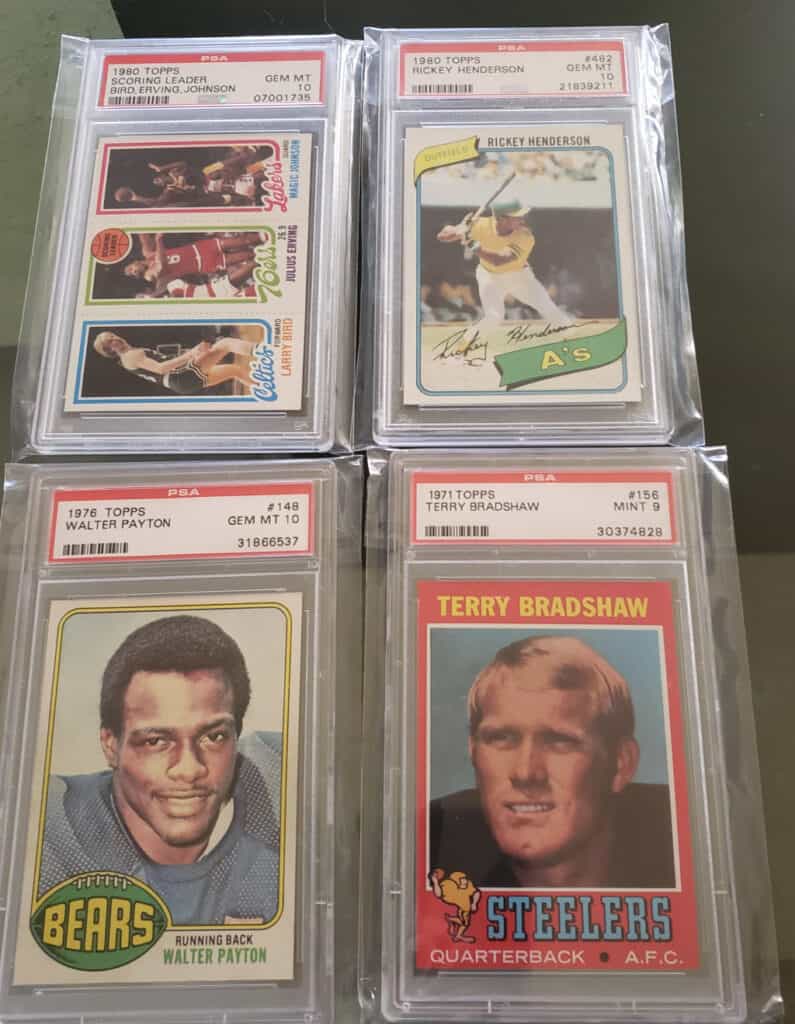
The 1986 Fleer Michael Jordan rookie card wasn’t just another counterfeit for Mayo Gilbert McNeil—it was the crown jewel of his fraudulent empire.
Federal prosecutors revealed that McNeil targeted this card with a level of sophistication that made him one of the most dangerous forgers in sports memorabilia history.
According to court documents, McNeil’s method for the Jordan rookie was intricate. One victim from Manhasset, New York, purchased what appeared to be a pristine PSA 10 graded Jordan rookie card for $4,500.
The card looked legitimate — it had a matching PSA certification number, appeared in perfect condition, and seemed to pass every initial authentication check.
The reality was far more complex. McNeil wasn’t simply creating fake cards from scratch. Instead, he would use real cards of slightly lower grades and meticulously swap them into fake PSA-style holders.
He would then place authentic-looking PSA labels on the front of the slab, carefully matching certification numbers that appeared legitimate when cross-referenced with PSA’s database.
Check prices on 1986-87 Michael Jordan Fleer rookie cards on eBay
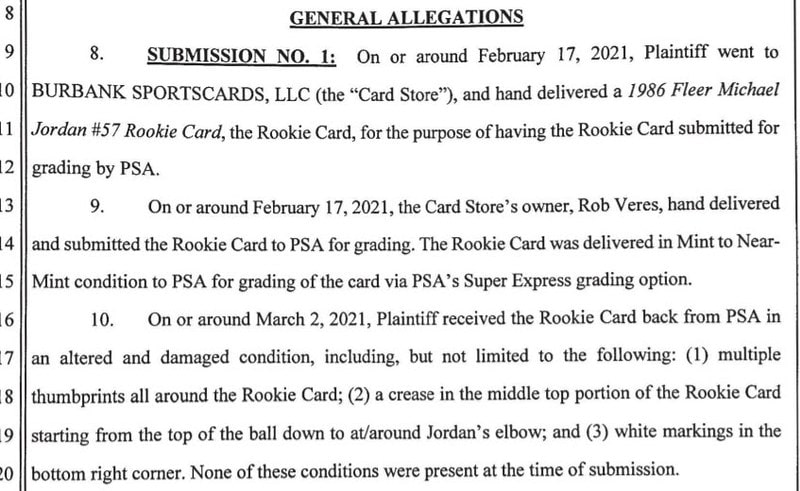
U.S. Attorney Breon Peace was direct in his statement about the case: “Protection from fraud extends to all consumers, regardless of what team they root for.”
The FBI’s investigation uncovered that McNeil would communicate with potential customers outside of official auction platforms, telling them the cards were graded by PSA when they had not been submitted to the grading service.
The financial scale of the fraud is significant. Prosecutors allege that McNeil netted approximately $800,000 through these fraudulent transactions. In one specific instance from 2017, court records show McNeil traded two counterfeit cards for a pair of authentic Tom Brady football cards.
McNeil was arrested in Denver on March 8, 2023, after a complaint was unsealed in a federal court in Brooklyn, New York. He was released without bail after appearing in the U.S. District Court in Colorado. His sentencing is scheduled for July 10, and he remains on bail until that date.
The case highlights the ongoing challenges in the world of collecting sports memorabilia. As FBI Assistant Director-in-Charge Michael J. Driscoll stated, “As alleged, Mr. McNeil defrauded sports memorabilia collectors by intentionally misrepresenting the authenticity of the trading cards he was peddling when, in fact, they were counterfeit.”
This is not merely a fraud story but a cautionary tale for collectors. It demonstrates the sophisticated methods some individuals might use to exploit the passionate and trusting community of sports card enthusiasts.
Check prices on 1986-87 Michael Jordan Fleer rookie cards on eBay
The FBI’s investigation uncovered that between April 2015 and July 2019, McNeil specifically targeted the Jordan rookie card in multiple transactions.
In one intercepted communication from 2015, an unindicted co-conspirator wrote about their scheme: “You and Jr. in January are gonna travel cross-country in the USA with cards in the new cases. You’ll be making $5k on every deal.”
McNeil’s attention to detail made his Jordan rookie forgeries particularly insidious. He understood the card’s specific vulnerabilities—the precise yellow of the Fleer logo, the exact printing characteristics, and the subtle variations in its glossy finish. By exploiting these minute details, he created counterfeits that could fool even experienced collectors.
The 1986 Fleer Jordan rookie was more than another card in McNeil’s fraud scheme. It was the ultimate prize — a card so legendary and valuable that even a perfect forgery could net tens of thousands of dollars. It was the ideal target for McNeil: a card every serious collector wanted, and few could truly authenticate.
When admitting his guild, McNeil confessed to the following: “These cases in which the cards were authentic indicated instead that these cards were genuine and of a high grade quality. I knew some of these cards I received from a supplier, were fraudulent grades.
I paid the supplier the money I received for the cards I sold while keeping a percentage for myself. I communicated with the supplier and the victims by text and email. I used the mail to receive the supplier’s cards and sent him the money the victims paid me.
I entered this agreement knowingly, intending to help the supplier sell falsely graded cards. I know that selling falsely graded cards is wrong. As part of the disagreement, in July 2019, I knowingly and intentionally sold a fraudulent grade trading card to a victim in exchange for $4,500, which he wired into my bank account.”
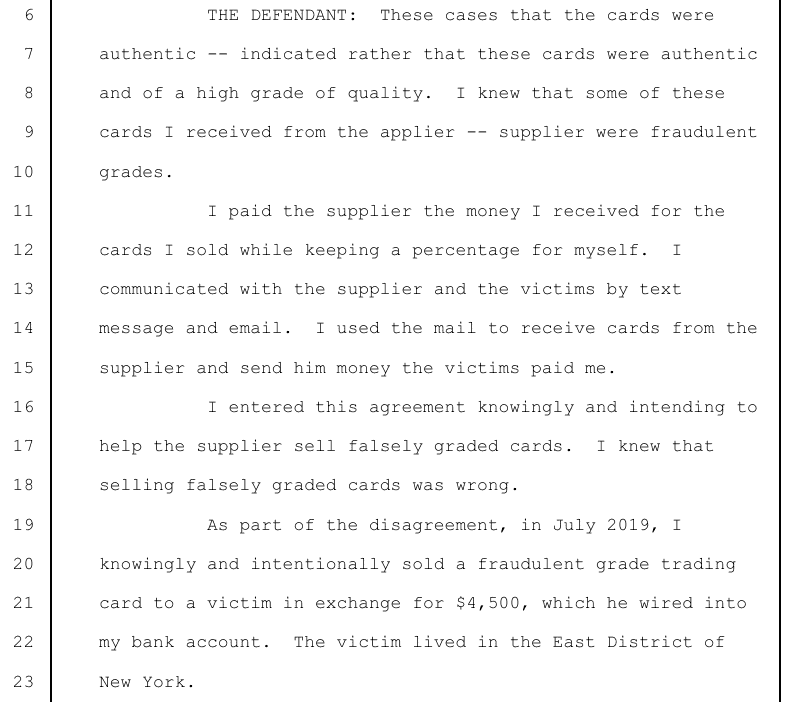
Mayo Gilbert McNeil’s $800,000 sports card fraud is the rare exception in a world where most counterfeiters walk free. For every fraudster like McNeil who gets caught, dozens more continue to operate in the shadows of the collectibles market, exploiting the passion and trust of collectors with near-impunity.
The world of sports memorabilia is an underground ecosystem where fraud is more common than prosecution. McNeil’s conviction is not the rule, but a startling anomaly.
Most counterfeiters carefully navigate legal grey areas, using sophisticated methods that leave collectors with little recourse. As one investigator noted, in sports card fraud, “criminals get away with murder” — or more precisely, steal the dreams of passionate collectors.
U.S. Attorney Breon Peace’s statement that “protection from fraud extends to all consumers” rings hollow when most crimes go uninvestigated and unpunished. McNeil’s case serves not as a triumph of justice, but as a chilling reminder of how vulnerable the collectibles market remains.
Check prices on 1986-87 Michael Jordan Fleer rookie cards on eBay
Topps Chrome 2024-25 Basketball: Honest Review and Notes
Did you know this SECRET about PSA slabs? #sportscard #tcg
5 EASY tips to make more money on eBay sports cards.
I opened a sports card mystery box and found something AWESOME inside
The SAD story of Collectable. What went wrong? (The Downfall Fractional Sports Card Investing)
what was Panini doing? 🙄
I compared sports card prices from the big sellers to save YOU money
Is GameStop buying PSA? (the truth!)
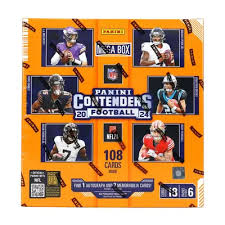
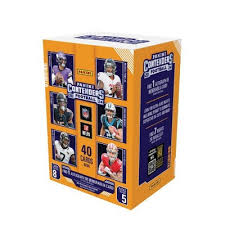
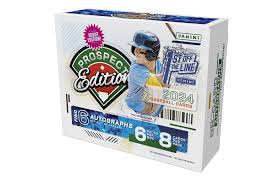
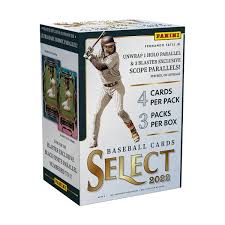
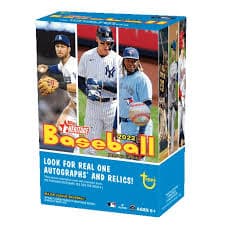
2022 Topps Heritage Baseball Blaster Box Configuration: 7 Packs per Box – 9 Cards per Box. Plus 1 extra pack.
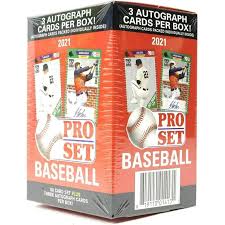
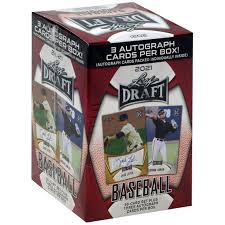
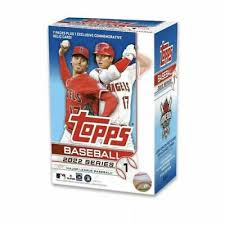


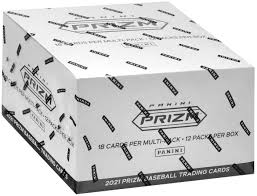

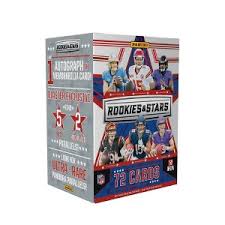

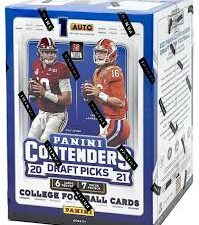
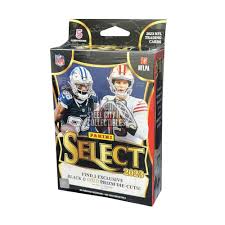
Keep up on breaking Sports Card News, our latest articles, product specials and exclusive content with expert analysis of hobby trends.

© Copyright 2025 - All rights reserved Cardlines.com / Media Techs LLC - Sports Card News, Reviews, Releases and BREAKS - #thehobby.
Important: When you click on links to various merchants on this site and make a purchase, this can result in this site earning a commission. Affiliate programs and affiliations include, but are not limited to, the eBay Partner Network.
Panini is launching a WNBA Product at $30,000!?
Cardlines June 27, 2025 5:54 am